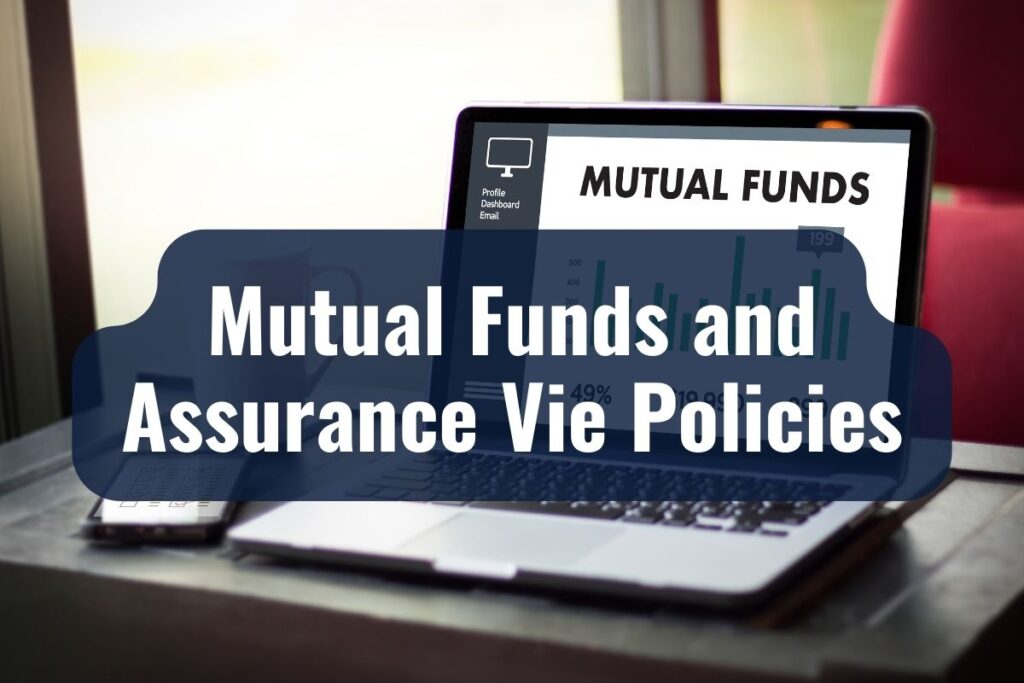We provide clear and actionable insights into making informed investment decisions in France. From real estate to stocks, bonds, and mutual funds, and the complexities of the French tax system, this article aims to equip you with the knowledge needed to confidently invest in France.
KEY TAKEAWAYS
- Investing in France offers a diverse landscape with opportunities in real estate, stocks, bonds, and mutual funds.
- Real estate in France provides stability and the potential for rental income and capital appreciation.
- The French stock market and bonds offer portfolio diversification and risk management avenues.
- Mutual funds and assurance vie policies are essential for diversified, tax-efficient investment strategies.
- Navigating tax considerations is crucial for optimizing investment returns in France.
- Effective estate planning requires understanding French laws and leveraging tools like assurance vie policies.
Understanding French Investment Landscape
France’s investment environment is as diverse as it is sophisticated, offering a range of opportunities that cater to different preferences, risk appetites, and financial goals. Expatriates considering investments in this country have several avenues to explore, each with its own set of benefits and considerations.
Popular Investment Avenues
| Investment Avenue | Key Features | Benefits |
| Real Estate | Stability, Potential for Rental Income, and Capital Appreciation | Long-term Growth and Lifestyle Investment |
| Stocks and Equities | Access to Global Companies and Diversification | Potential for Significant Returns |
| Bonds | Government and Corporate Bonds; Lower Risk | Steady Income and Lower Volatility |
| Mutual Funds | Professional Management and Diversification | Access to Broad Markets and Risk Management |
| Assurance Vie Policies | Tax Efficiency and Estate Planning | Flexible Beneficiary Designation and Tax Benefits |
Real Estate: A perennial favorite, real estate in France is known for its stability and potential for both rental income and capital appreciation. The market offers a variety of options, from urban apartments in Paris to charming villas in the countryside.
Stocks and Equities: The French stock market, with the Paris Bourse as its centerpiece, presents opportunities to invest in some of the world’s most renowned companies. It’s accessible through direct investments or various financial instruments like mutual funds.
Bonds: For those seeking more secure investments, French government and corporate bonds offer a way to earn interest over time, with less risk compared to stocks.
Mutual Funds: Mutual funds (SICAVs and FCPs in French terminology) allow investors to pool their money in a diversified portfolio of stocks, bonds, or other securities, managed by professional fund managers.
Assurance Vie: A unique investment vehicle in France, assurance vie is a life insurance product that serves as a tax-efficient way to invest in a mix of assets, with benefits for estate planning.
Fiscal Advantages
Several investment options in France come with fiscal advantages that can significantly affect an expat’s investment strategy:
Tax Incentives
Various tax incentives are available for investments in certain sectors or instruments, designed to encourage economic growth and innovation.
Assurance Vie Benefits
Assurance vie policies, in particular, offer tax benefits, such as deferred taxation on earnings and favorable treatment for estate planning purposes.
Real Estate Tax Benefits
Investing in real estate can provide tax advantages, including potential deductions on rental income and capital gains tax exemptions under specific conditions.
Real Estate Investment

Real estate investment stands as a cornerstone of wealth-building strategies in France, attracting expatriates with its promise of stability, attractive rental yields, and potential for capital appreciation. The process, while straightforward on paper, requires careful navigation through legal requirements and an understanding of the tax implications.
Key Steps to Investing in French Real Estate
Property Search
Begin with a comprehensive search to identify properties that meet your investment criteria. Consider location, type of property, market trends, and potential for rental income or appreciation. Online platforms, real estate agents, and property expos are excellent resources.
Legal Requirements
Familiarize yourself with the legal process of buying property in France, which includes signing a preliminary agreement (compromis de vente) and the final act of sale (acte de vente) in front of a notary. Ensure all necessary checks are conducted, including title search and property inspection.
Financing
If financing is required, explore mortgage options. French banks offer mortgages to expatriates, but the process can be complex. Preparation is key, with proof of income, a solid credit history, and a down payment generally required.
Tax Implications
Understand the tax implications of owning and possibly renting out property in France. This includes property taxes (taxe foncière), potential income taxes on rental income, and capital gains tax if the property is sold in the future.
Benefits of Real Estate Investment
Stable Rental Yields: Many areas in France, especially major cities and tourist destinations, offer stable rental yields due to high demand.
Capital Appreciation: Over the long term, French real estate has shown a trend of steady appreciation, making it an attractive option for capital growth.
Lifestyle Investment: Owning property in France can also serve as a lifestyle investment, offering a home in one of the world’s most sought-after living destinations.
Stock Market and Bonds
Investing in the stock market and bonds in France offers expatriates a pathway to diversify their portfolios beyond real estate, tapping into the economic growth and stability of one of Europe’s largest economies. Understanding how to engage with these investment vehicles is crucial for achieving financial objectives while managing risk.
Investing in the French Stock Market
The French stock market, led by Euronext Paris, is home to many globally renowned companies across a variety of sectors. Expatriates interested in equity investments can participate in this market through:
Direct Stock Purchases
Buying shares of individual companies offers the potential for significant returns. It requires a good understanding of the market and the ability to withstand volatility.
Mutual Funds and ETFs
For those seeking diversification without the need to manage individual stock picks, mutual funds and exchange-traded funds (ETFs) provide exposure to a broad range of assets within the French market.
Investors can access these options through brokerage accounts, which can be set up with international or local French brokers. It’s important to consider fees, trading platforms, and access to market research when choosing a broker.
Bond Investments
Bonds present a more conservative investment option compared to stocks, making them suitable for those seeking steady income and lower risk. In France, investors can choose from:
Government Bonds (Obligations Assimilables du Trésor – OATs): These are secure, government-issued bonds with fixed interest rates, offering a reliable return over a defined period.
Corporate Bonds: Issued by companies, these bonds typically offer higher interest rates than government bonds but come with increased risk.
Investing in bonds can be done directly through financial institutions or indirectly via bond funds, which pool multiple bonds to offer diversification and professional management.
Key Considerations
Market Research: Successful investment in stocks and bonds requires keeping abreast of market trends, economic indicators, and company performance.
Risk Management: Diversifying your investment portfolio across different sectors and asset classes can help manage risk.
Tax Implications: Understanding the tax implications, including capital gains tax and tax on interest earned from bonds, is essential for optimizing the post-tax return on your investments.
Mutual Funds and Assurance Vie Policies

For expatriates in France, mutual funds and assurance vie policies represent two pivotal investment vehicles, each offering distinct advantages in terms of diversification, tax efficiency, and estate planning. Understanding the nuances of these options can significantly impact investment strategies and financial planning.
Mutual Funds in France
Mutual funds, known as SICAVs (Société d’Investissement à Capital Variable) and FCPs (Fonds Commun de Placement), allow investors to pool their money into a diversified portfolio of stocks, bonds, or other securities. Managed by professional fund managers, these funds aim to mitigate risk while capitalizing on market opportunities.
Diversification: Investing in a wide range of assets helps spread risk and can lead to more stable returns over time.
Professional Management: Fund managers make investment decisions based on extensive research and market analysis, beneficial for investors who may lack the time or expertise to manage their portfolios.
Accessibility: Mutual funds offer an accessible way for expatriates to invest in a broad segment of the French or global markets without needing to buy individual securities.
Assurance Vie Policies
Assurance vie is a unique French financial product that serves as both a life insurance policy and an investment vehicle. It is particularly appealing for its tax benefits and flexibility.
Tax Efficiency
Assurance vie policies offer a favorable tax treatment on earnings after a certain period, reducing the tax burden on investment gains. Additionally, they provide significant advantages for estate planning, allowing policyholders to nominate beneficiaries who may benefit from reduced or exempt inheritance taxes.
Investment Choices
Policies can include a range of investment options, from secure bonds to diversified equity funds, allowing investors to tailor their portfolio, according to their risk tolerance and financial goals.
Estate Planning
Assurance vie policies are a powerful tool in estate planning, offering a legal framework to pass wealth to beneficiaries outside the strictures of French succession law, which can be particularly advantageous for expatriates.
Key Considerations
Investment Horizon: Both mutual funds and assurance vie policies are best suited for medium to long-term investment horizons, allowing time for investments to grow and for the compounding effect to take place.
Risk Profile: Investors should carefully assess their risk tolerance and investment objectives when selecting mutual funds or assurance vie policies, considering the range of investment options and their respective risk-return profiles.
Regulatory Changes: Staying informed about regulatory changes is crucial, as tax laws and investment regulations in France can evolve, impacting the advantages of these investment vehicles.
Tax Considerations for Expats
For expatriates investing in France, understanding the tax implications is essential. The French tax system encompasses various taxes on income, capital gains, and wealth, which can significantly affect the return on investments.
Income Tax on Investments
Interest and Dividends: Income from investments, such as interest from bonds or dividends from stocks, is subject to income tax. France employs a progressive tax rate system, meaning that the tax rate increases as income rises. Additionally, social charges are applied to investment income, further impacting net returns.
Rental Income: For real estate investments, rental income is taxable in France. Non-residents are taxed on French-sourced rental income, with the possibility to deduct certain expenses and potentially benefit from tax treaties between France and their home country to avoid double taxation.
Capital Gains Tax
Real Estate: Capital gains on the sale of real estate properties are subject to tax. There are exemptions and sliding scale reductions based on the length of ownership, with properties held for over 22 years exempt from capital gains tax and those held for over 30 years exempt from social charges.
Stocks and Securities: Gains from the sale of stocks and other securities are also subject to capital gains tax. However, there are allowances and a taper relief system that can reduce tax liability over time.
Wealth Tax
France imposes a wealth tax, known as “Impôt sur la fortune immobilière” (IFI), on real estate assets exceeding a certain threshold. Expatriates who are residents of France are liable for this tax on their worldwide real estate assets, while non-residents are only taxed on real estate assets located in France.
Tax Efficiency Strategies
Utilizing Tax-Advantaged Accounts: Assurance vie policies are a prime example of tax-advantaged investment vehicles, offering deferred taxation and favorable treatment for inheritance planning.
Taking Advantage of Tax Treaties: France has tax treaties with many countries, which can help prevent double taxation on income and capital gains. Understanding and applying these treaties effectively can reduce the overall tax burden.
Estate Planning: Investments structured through assurance vie can provide significant estate planning benefits, including reduced inheritance taxes for beneficiaries, which is particularly important for expatriates with heirs in different countries.
Estate Planning for Expats

Estate planning in France is a critical consideration for expatriates, especially given the country’s unique inheritance laws and tax regime. Effective estate planning ensures that assets are distributed according to an individual’s wishes, while also optimizing for tax efficiency and legal compliance.
Importance of Estate Planning
For expatriates living in France, navigating the nuances of French succession law is essential. These laws dictate how assets are divided upon death, often favoring direct descendants in ways that might differ significantly from the laws in an expat’s home country. Without proper planning, an individual’s estate might not be distributed as intended, and significant tax liabilities could arise.
Overview of French Succession Laws
Forced Heirship: French law includes provisions for forced heirship, which means a portion of an estate must be left to direct descendants (children). This can limit the flexibility to allocate assets as one might wish.
Spousal Inheritance: Unlike some jurisdictions, spouses are not automatically considered heirs under French law, highlighting the importance of specific estate planning measures to protect a surviving spouse.
Strategies for Estate Planning
Assurance Vie Policies: These policies are an effective tool for estate planning, allowing policyholders to name beneficiaries outside the scope of traditional succession laws. Beneficiaries can include non-relatives, offering a way to circumvent forced heirship rules. The policies also provide tax benefits, reducing the inheritance tax burden on recipients.
Gifting: Making use of gifting allowances can be a strategic way to pass wealth to heirs during one’s lifetime, potentially reducing future estate tax liability. France offers allowances for gifts to children, grandchildren, and spouses, among others.
International Wills: Expatriates can benefit from drafting an international will, a document recognized in multiple countries that can help ensure their wishes are respected in France as well as their home country. This is particularly useful for assets spread across different jurisdictions.
Seeking Professional Advice
Given the complexity of estate planning, especially for expatriates with assets in multiple countries, consulting with legal and financial professionals is crucial. Experts familiar with both French law and the laws of the expatriate’s home country can provide invaluable guidance, ensuring that estate plans are both effective and compliant.
Key Considerations
Regular Review: Estate plans should be reviewed regularly, especially following major life events such as marriage, divorce, the birth of children, or changes in residency status. Laws and personal circumstances evolve, necessitating updates to estate planning documents and strategies.
Compliance with French Law: Ensuring that estate planning efforts are compliant with French law is essential to avoid unintended consequences or disputes. Professional advice can navigate these legal complexities, aligning an individual’s estate plan with their wishes and the legal framework.
Opening a Bank Account in France

Opening a local bank account is a foundational step for expatriates looking to invest in France. It not only facilitates daily financial transactions but also serves as a gateway to investing in real estate, stocks, bonds, and other financial instruments within the country. The process is straightforward, though it does require attention to detail and preparation of the necessary documentation.
Steps to Open a Bank Account
Choose a Bank
Start by selecting a bank that meets your needs. Consider factors such as online banking capabilities, English language support, fees, and the availability of financial products suitable for expatriates.
Gather Required Documentation
Typically, banks in France require identification (such as a passport), proof of residence (like a utility bill or rent agreement), and proof of income or employment. Some banks may also ask for a French tax identification number.
Schedule an Appointment
While some banks offer online account opening, many still require a face-to-face meeting. Scheduling an appointment with an English-speaking advisor can simplify the process.
Complete the Application
During your appointment, you’ll fill out an application form. This is also a good opportunity to ask questions about account features, fees, and additional services that may be beneficial for your investment activities.
Deposit Funds
Once your account is approved, you’ll need to make an initial deposit. The required amount varies by bank but is usually modest.
Considerations for Expatriates
Non-Resident Accounts: If you’re not yet resident in France, or if you maintain residences in multiple countries, consider opening a non-resident account. These accounts are specifically designed for individuals who do not have a permanent address in France but need to conduct financial transactions in the country.
Digital Banks and International Banks: Digital banking options and international banks operating in France can offer more flexibility for expatriates, with features tailored to their needs. These alternatives may provide services in English and easier integration with banking systems in other countries.
Benefits of a Local Bank Account
Ease of Transactions: A local bank account simplifies everyday transactions, including paying bills, receiving income, and managing investments.
Access to Financial Services: Beyond basic banking, having a local account often provides easier access to loans, mortgages, and investment advice tailored to the French market.
Integration into the French Financial System: A local account facilitates smoother interactions with French tax authorities and other official bodies, an important consideration for expatriates involved in investment activities.
Seeking Professional Advice

For expatriates investing in France, navigating the complex web of financial, tax, and legal regulations can be challenging. Seeking professional advice is not just recommended; it’s a critical step in ensuring that investment decisions are sound, tax liabilities are minimized, and legal requirements are fully met. This approach helps in making informed decisions, aligning with both French regulations and the investor’s personal financial goals.
Financial Advisors
Investment Strategies: A financial advisor with experience in the French market can provide valuable insights on investment opportunities, tailored to your financial objectives and risk tolerance.
Tax Planning: They can also offer guidance on optimizing your investments for tax efficiency, taking into account the nuances of the French tax system and potential implications for your home country’s tax obligations.
Regular Reviews: Engaging with a financial advisor for regular portfolio reviews ensures your investment strategy remains aligned with market conditions and your evolving financial goals.
Tax Specialists
Understanding Tax Liabilities: A tax specialist knowledgeable in both French and international tax law can clarify your tax obligations in France, including income tax, capital gains tax, wealth tax, and inheritance tax.
Tax Optimization: They can advise on structuring investments and assets in a way that minimizes tax liabilities, utilizing vehicles such as assurance vie policies and taking advantage of tax treaties.
Filing Requirements: For expatriates, the annual tax filing process in France can be complex. A tax specialist can assist with accurate and timely tax return preparation, ensuring compliance with French regulations.
Legal Experts
Navigating French Law: Legal experts can provide advice on compliance with French investment and property laws, helping to navigate the legal requirements for purchasing real estate, setting up a business, or making other significant investments.
Estate Planning: They are invaluable in estate planning, offering strategies to manage your estate under French law, including the use of wills and assurance vie policies to direct asset distribution according to your wishes.
Contract Review and Negotiation: Legal advisors can review and negotiate contracts on your behalf, ensuring that your investments are protected and that you fully understand the obligations and rights involved.
The Value of Professional Advice
Engaging professionals who understand the intricacies of French and international laws and tax systems can provide peace of mind and financial benefits. They can navigate the complexities on your behalf, allowing you to focus on your investment goals. Moreover, their expertise can prevent costly mistakes and ensure that your investment strategy is both effective and compliant.
Final Thoughts
Investing in France as an expatriate presents a unique blend of opportunities and challenges. With its diverse investment landscape, including real estate, stocks, bonds, mutual funds, and assurance vie policies, France offers avenues for growth and wealth preservation that are attractive to investors worldwide. However, the complexity of the French tax system, along with the intricacies of estate planning and legal considerations, underscores the importance of thorough preparation and informed decision-making.
The key to successful investing in France lies in understanding the local investment environment, optimizing for tax efficiency, and navigating legal requirements with confidence. This involves not only a deep dive into the opportunities available but also a clear strategy for mitigating potential risks.
Regular engagement with financial advisors, tax specialists, and legal experts can provide the insights and guidance necessary to tailor your investment approach to the unique French context, ensuring that your financial goals are met while complying with all regulatory obligations.
Moreover, the dynamic nature of the investment landscape in France requires investors to stay informed and adaptable. Changes in tax laws, fluctuations in the real estate market, and shifts in the economic climate can all impact the performance of your investments. Regular reviews of your investment strategy, in consultation with professional advisors, will ensure that your portfolio remains aligned with your objectives and responsive to market changes.
Investing in France offers a pathway to achieving financial goals through a strategic and well-informed approach. By leveraging the insights provided in this guide and seeking professional advice, expatriates can navigate the French investment landscape with confidence, making the most of the opportunities available for growth and wealth preservation.


